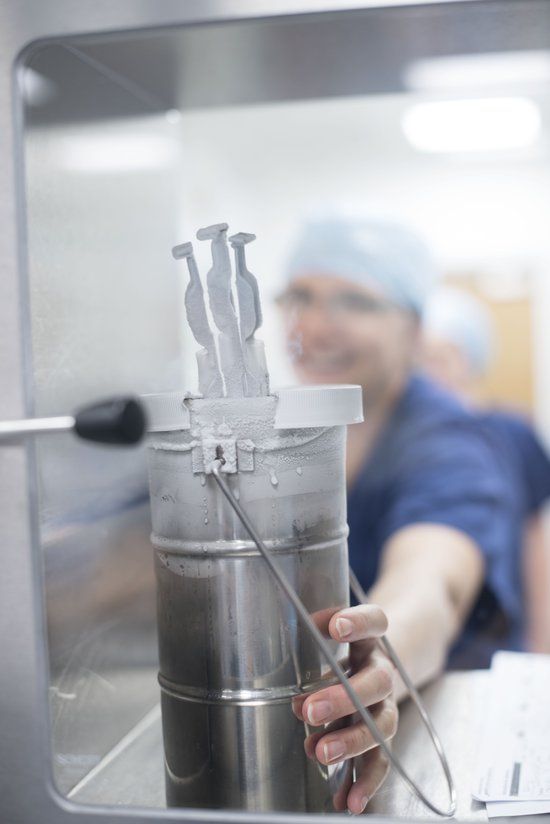It’s well known that sperm can be frozen and thawed in later years for use in infertility treatment, but now a baby has been born using sperm that was frozen almost 25 years ago.
It’s thought that this is the oldest ‘frozen’ sperm ever to be used successfully in Britain. In this case the baby’s father, Richard Potts, had frozen his sperm when he was just 21, after a diagnosis of testicular cancer. Doctors warned the necessary treatment could leave him infertile, so Richard heeded their advice and froze samples of his sperm.
Baby Vivienne is the result, and what’s heartening to see is the hope that this case gives to people who are faced with trying to protect their fertility whilst also going through necessary medical treatment.
Here at Manchester Fertility we offer sperm freezing and there are a number of reasons why it’s done. Usually, men choose to freeze their sperm prior to starting treatment such as chemotherapy, which can affect fertility and sperm quality. Some men also decide to freeze sperm prior to a vasectomy, and also in cases where they have a medical condition which can affect sperm quality.
The good news is that it’s a very simple process. Sperm can actually be stored for many years and then thawed and used in an IVF cycle to achieve pregnancy. This is because the sperm sample you provide is preserved in liquid nitrogen for future use.
Of course it’s important to remember that your chances of successful pregnancy using ‘thawed’ sperm depends on a number of factors, including how well your sperm survives the freeze-thaw process. But what this latest case has demonstrated is that it is possible to freeze sperm for many, many years and it still be viable to use much later down the line.
So for young cancer suffers and those faced with losing fertility at an early age, this success from long-term storage is positive news. For more information on sperm freezing and egg freezing, click here.
Last updated: 20th January 2020





